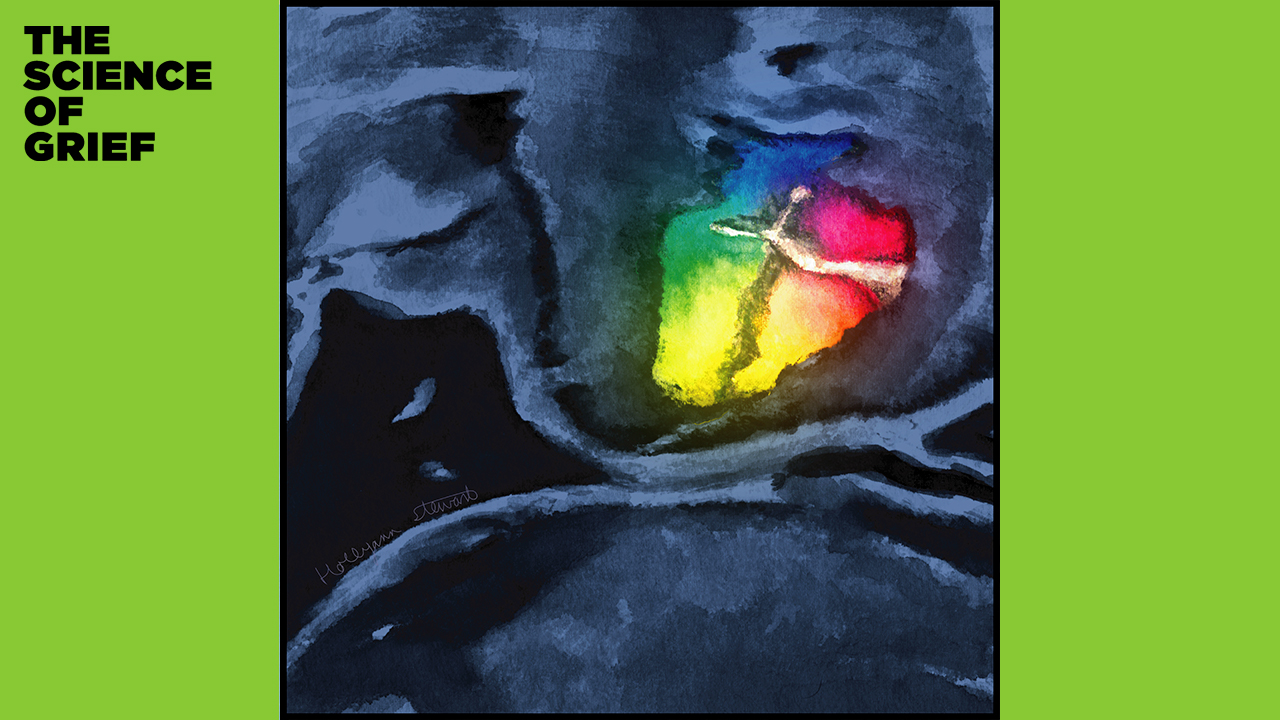Living a Full Life with Half a Heart
Sierra Maybury talks about the anxiety and depression that a chronic heart condition has brought her, and how she has learned to live a full life in spite of it. Then, mental health counselor Bonnie Wheeler provides strategies for people living with anxiety.

The Science of Grief, produced by WDET and Science Gallery Detroit, explores the stories, science and solutions around grief and mental health, making space for young adults to share their stories, but also lead the conversation.
Never miss an episode.
Subscribe where ever you listen to podcasts:
Apple Podcast — Spotify — NPR — Stitcher — Google Podcasts — TuneIn
Sierra Maybury was born with half a heart, which has resulted in a lifetime of complications.
“I basically have had two open-heart surgeries to … rewire my system, because I was born without the right side of [my] heart, which brings blood from your heart, to your lungs, back to your heart,” explains Sierra. “That procedure was about 10 to 20 years [old] when I was born and, in the medical field, that’s still relatively new.”
Her condition also added considerable risk to her pregnancy. “I was basically told I was a high-risk pregnancy because your body changes so much,” she explains. “I’m healthy and functioning, but … there was a big concern of the toll of the pregnancy on my heart.”
Sierra’s own son was born healthy, with a full heart. “When I got pregnant, I was really worried that that was something that would be carried over,” she recalls. “So I asked when we could see the whole heart and they were like ‘It’s functioning; it’s totally healthy.”
In addition to her heart condition, Sierra has also experienced two strokes, leaving her partially blind, and has developed an arrhythmia and, subsequently, tachycardia. The flux and uncertainty of Sierra’s health have resulted in anxiety and depression.
Managing Anxiety, Staying in the Moment
Sierra says her anxiety makes her feel a sense of “impending doom.” “I have this feeling in the chest … this tightness. … I have this feeling of, ‘I need to do something’ and otherwise the consequence of me not doing something is really bad.”
Over time, Sierra has developed some techniques to help her overcome her anxiety, but it’s not easy. “It’s a really hard emotion to snap yourself out of, because there isn’t necessarily an opposite thing you can do,” she says. “If you’re sad, you could watch a comedy or something, and if you’re angry, you could journal about it or scream and hit a pillow and then hopefully feel better after that. But for anxiety … I feel like it’s a really, really hard thing to counteract.”
To overcome her anxiety, Sierra relies on self-soothing by listening to classical music, drinking tea and distracting herself by drawing. She also employs EMDR, or Eye Movement Desensitization and Reprocessing therapy, as a way of diverting attention. Another technique is to create a running dialogue about her day in order to make her brain focus. “Essentially, that idea is to break everything into its smallest, most immediate step,” she says. “Breaking everything into its smallest step is another way of … forcing your brain to focus on only one thing at hand.”
Science of Grief Mediator Patrick Vaughan demonstrates an Emotional Freedom Release technique, a form of EMDR:
Tips on Managing Anxiety from Bonnie Wheeler
Licensed social worker Bonnie Wheeler has more than 40 years of experience as a grief counselor. After hearing Sierra’s story, she provided her own recommendations to people trying to manage their anxiety.
- Focus on what is happening in the present and what you have to celebrate.
- As your anxiety ramps up and your fight or flight response kicks in, you’re not breathing as well as you should. Focus on breathing and what you have control over.
- You are your own worst critic; be gentle with yourself.
- Other people go through this; when you feel it, it can be isolating, but lots of people deal with anxiety. Consider talking to someone or joining a support group.
Previous Episodes of Science of Grief
- Acknowledging Grief and Embracing Therapy with Joshua Watkis and Damika Houston
- Setting Healthy Boundaries with Maria LoCicero
- Exploring Unexpected Loss with Aaron Burch
Seeking Help
While this podcast is meant to make space for sharing stories and solutions, it is not a substitute for professional help. If you have a mental health concern and need someone to talk to, please contact a mental health professional or your doctor.
If you are in a suicidal crisis or emotional distress, please call the National Suicide Prevention Lifeline: 800-273-8255.
The Science of Grief podcast is a collaboration between WDET and Science Gallery Detroit, and is supported by the Children’s Foundation of Michigan, MSUFCU and Science Sandbox.

Trusted, accurate, up-to-date
WDET is here to keep you informed on essential information, news and resources related to COVID-19.
This is a stressful, insecure time for many. So it’s more important than ever for you, our listeners and readers, who are able to donate to keep supporting WDET’s mission. Please make a gift today.

